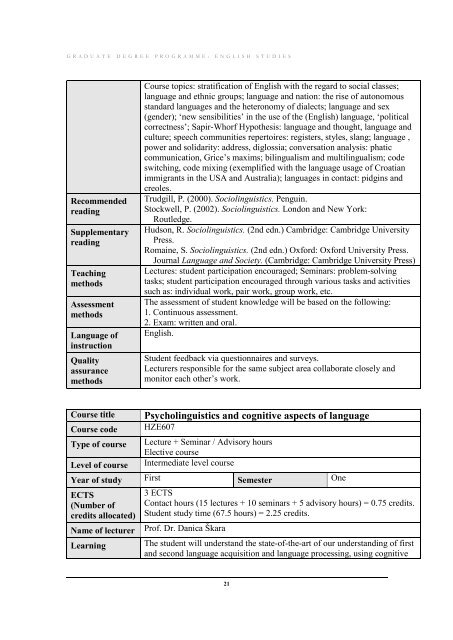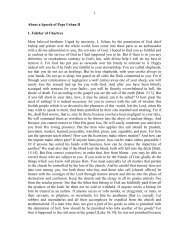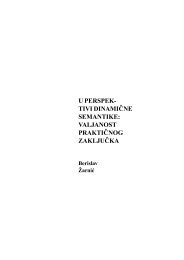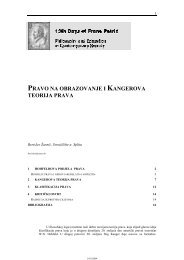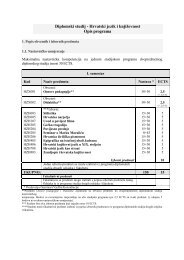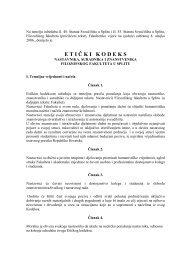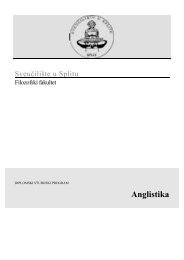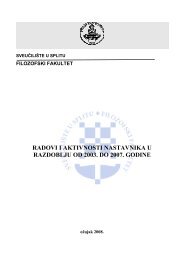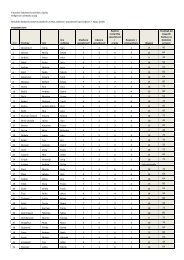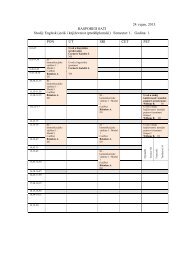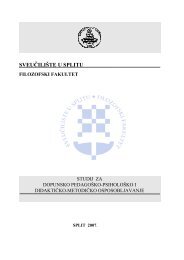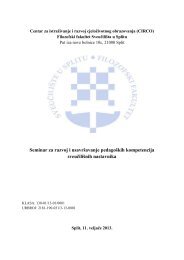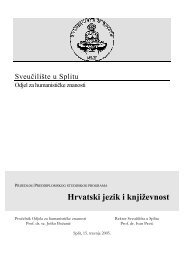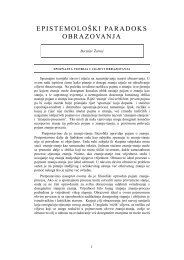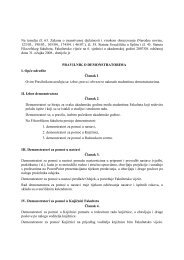English Studies
English Studies
English Studies
Create successful ePaper yourself
Turn your PDF publications into a flip-book with our unique Google optimized e-Paper software.
G R A D U A T E D E G R E E P R O G R A M M E : E N G L I S H S T U D I E S<br />
Recommended<br />
reading<br />
Supplementary<br />
reading<br />
Teaching<br />
methods<br />
Assessment<br />
methods<br />
Language of<br />
instruction<br />
Quality<br />
assurance<br />
methods<br />
Course topics: stratification of <strong>English</strong> with the regard to social classes;<br />
language and ethnic groups; language and nation: the rise of autonomous<br />
standard languages and the heteronomy of dialects; language and sex<br />
(gender); ‘new sensibilities’ in the use of the (<strong>English</strong>) language, ‘political<br />
correctness’; Sapir-Whorf Hypothesis: language and thought, language and<br />
culture; speech communities repertoires: registers, styles, slang; language ,<br />
power and solidarity: address, diglossia; conversation analysis: phatic<br />
communication, Grice’s maxims; bilingualism and multilingualism; code<br />
switching, code mixing (exemplified with the language usage of Croatian<br />
immigrants in the USA and Australia); languages in contact: pidgins and<br />
creoles.<br />
Trudgill, P. (2000). Sociolinguistics. Penguin.<br />
Stockwell, P. (2002). Sociolinguistics. London and New York:<br />
Routledge.<br />
Hudson, R. Sociolinguistics. (2nd edn.) Cambridge: Cambridge University<br />
Press.<br />
Romaine, S. Sociolinguistics. (2nd edn.) Oxford: Oxford University Press.<br />
Journal Language and Society. (Cambridge: Cambridge University Press)<br />
Lectures: student participation encouraged; Seminars: problem-solving<br />
tasks; student participation encouraged through various tasks and activities<br />
such as: individual work, pair work, group work, etc.<br />
The assessment of student knowledge will be based on the following:<br />
1. Continuous assessment.<br />
2. Exam: written and oral.<br />
<strong>English</strong>.<br />
Student feedback via questionnaires and surveys.<br />
Lecturers responsible for the same subject area collaborate closely and<br />
monitor each other’s work.<br />
Course title Psycholinguistics and cognitive aspects of language<br />
Course code HZE607<br />
Type of course Lecture + Seminar / Advisory hours<br />
Elective course<br />
Level of course Intermediate level course<br />
Year of study First Semester One<br />
ECTS<br />
(Number of<br />
credits allocated)<br />
Name of lecturer<br />
Learning<br />
3 ECTS<br />
Contact hours (15 lectures + 10 seminars + 5 advisory hours) = 0.75 credits.<br />
Student study time (67.5 hours) = 2.25 credits.<br />
Prof. Dr. Danica Škara<br />
The student will understand the state-of-the-art of our understanding of first<br />
and second language acquisition and language processing, using cognitive<br />
21


